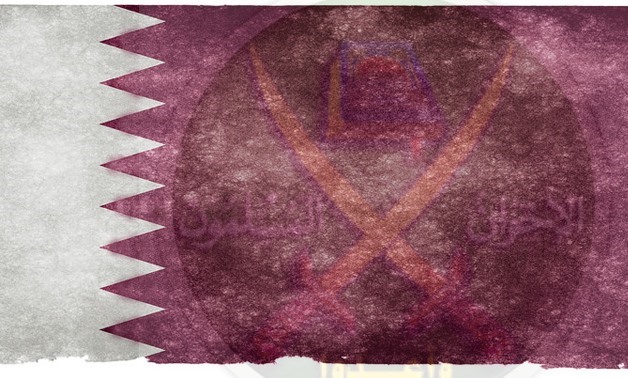
Qatari Flag - file photo
CAIRO - 19 June 2017: With Qatar at loggerheads with regional Arab neighbors, the Muslim Brotherhood is making hurried attempts through its branches in North Africa to end the crisis, after several Arab and Islamic countries decided to cut diplomatic ties with Doha or reduce their diplomatic representation in Qatar.
Rushing to Qatar’s aid are Brotherhood branches active in Algeria and Tunisia, as well as some other North African countries.
A few days after Arab countries took the joint decision to sever ties with Qatar, branches such as the Society for Peace issued a clear statement on June 10, declaring their support for Qatar, and condemning the decision.
In tandem, an Algerian Parliamentary Committee consisting of the Brotherhood members was dispatched to Doha to discuss the crisis with relevant officials.
The Algerian Movement, a Brotherhood affiliate, released a statement claiming that such a crisis harms the unity and stability of the Arab region, calling it ‘unjust’ to many Gulf countries’ citizens, residents and tourists who have nothing to do with political conflicts between their leaders.
In apparent defiance of the Arab stance, Abdel-Razzaq Makri, Algerian Movement president, meanwhile acknowledged the strong ties the Qatari regime enjoys with Israel, pointing to a discreet trade relation between the two countries that goes back to 1996.
In an article published on the Algerian Muslim Brotherhood official website, Makri announced, “Doha aimed at establishing both open and secret trade relations with Israel since 1996,” affirming that the Qatari regime is one of the most supportive ones to Islamic organizations and movements in the region.
In addition, he claimed that the Qatar regime’s economic success was the reason behind the siege inflicted on it by Arab and Islamic countries, and Makri also pointed to strong ties that bind Qatar and the U.S., referring to the latter’s Al-Udeid Air Base, built on Doha grounds.
Makri went on to indicate that Doha depends on Al Jazeera channel as a political entity that plays significant roles in igniting revolutions in the Arab region, suggesting that Doha supported the Arab Spring through Al Jazeera, and also through the aid it granted to the Brotherhood in Egypt and Tunisia.
At the same time, Al-Arab daily newspaper in London published a statement by the Association of Algerian Muslim Ulama, one that is near and dear to the Brotherhood, demanding the intervention of Islamic countries’ leaders and thinkers to ease the contention between Arab Gulf countries that threatens the region with an unprecedented adversity.
No sooner did the Algerian Brotherhood and their related associations issue their statement than Rachid Al-Ghannouchi, president of Tunisia’s Nahda movement—one of the Brotherhood branches in Tunisia, called upon his state to intervene and help settle the conflict between Arab countries and Qatar, under the pretext that the latter is a friend to Tunisia and has good relations with its leaders.
Al-Ghannouchi also asked Turkey to help Qatar out of the ordeal, mentioning how both countries are allies, the strong mutual relations Tunisia and Turkey have, and stressing that, “We are sure that Turkey will solve the Qatari crisis.”
Such attempts by the Brotherhood’s branches in North African countries were concurrent with the organization’s invitations advocating the necessity of an urgent solution to the Qatari crisis, claiming that the Arab boycotting act is ‘haram’ (religiously forbidden); along with an official statement it issued threatening the countries that abide by the act.
But can the intervention of Muslim Brotherhood branches outside Qatar indeed help the ostracized state? Khaled Al-Za’afarani, an expert in Islamic movements, said the Brotherhood does not have a significant influence in Algeria and that its members are hardly in accord with one another, not to mention that such proclamations are solemnly propaganda.
He added that the Brotherhood in Tunisia and Algeria could not possibly have any effect on the situation, and that their peers in Jordan, Kuwait and Bahrain are much more influential, but that they have refrained from interfering with the Qatari crisis.
In the same context, Tarek Al-Beshbishi, a former Brotherhood leader, said that the organization’s branches abroad announced their intentions to help because Qatar ensures the sustainability of funds for them, their groups and their leaders that fled Egypt to Doha. He also explained how those branches strive to bear down heavily upon their countries so as not to take any opposing stances against Doha.
The former Muslim Brotherhood leader then affirmed that such endeavors will ultimately fail, as Arab countries will certainly refuse any meddling on the part of the Brotherhood, even if such attempts come from foreign branches of the organization, particularly since a number of these countries consider the organization a terrorist one.

Comments
Leave a Comment